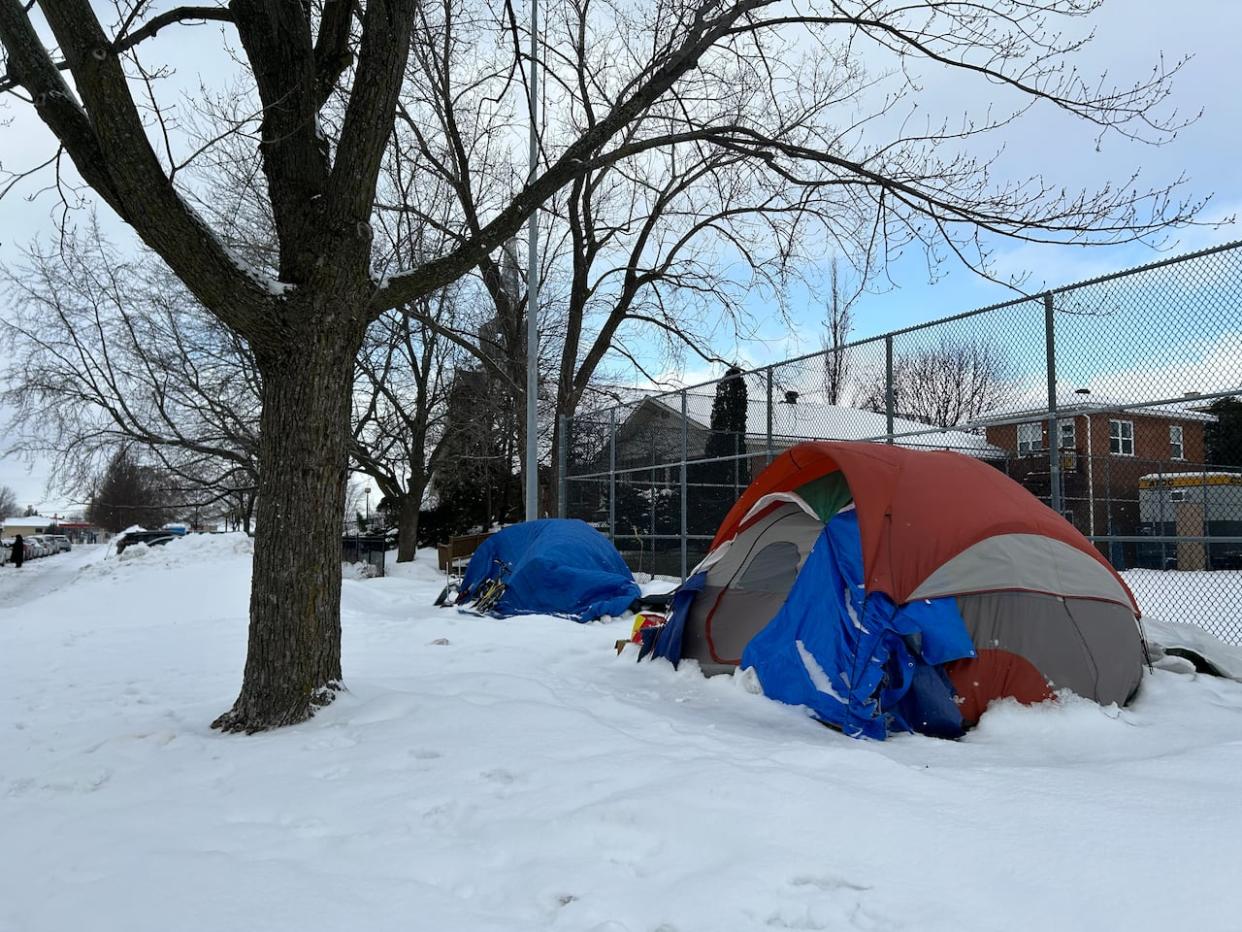With homelessness on the rise in Quebec, Longueuil now has plan of its own

From improving its housing options to making municipal services universally accessible, the city of Longueuil says it's ready to do more to help people experiencing homelessness.
On Monday, Longueuil Mayor Catherine Fournier presented two documents that are supposed to guide the city's efforts to address homelessness: One of them is called the Cadre de référence municipal de lutte à l'itinérance, which outlines the city's broad vision.
She also presented Longueuil's action plan for 2024-2026, which includes a short-, medium- and long-term to-do list.
"We want to engage with people who are experiencing homelessness in those actions," Fournier said Monday during a news conference. "We want to build a vision that takes care of their needs and to adjust our strategy based on them."
The guiding principles for the city's plan include addressing homelessness in a proactive and preventive way. It also wants to make sure people who are homeless and those who aren't are co-existing. Those principles also include looking at the issue through an intersectional lens, which means a person's gender, ethnic origin, disability are among the things that should be considered when analyzing their situation.
Here are some of the notable parts of Longueuil's action plan for homelessness for 2024-2026:
Facilitating housing access to people who are homeless or at risk of becoming homeless.
Updating the list of vacant buildings and lots that could be used for housing.
Accompanying community groups with housing projects.
Strengthening ties between Longueuil police and community groups.
Making sure the design of public spaces, including benches and chairs, doesn't exclude homeless people.
Improving access to municipal services like libraries, recreational activities and financial assistance.
Launching a pilot project with intervention workers based in libraries.
Launching a pilot project giving people experiencing homelessness access to storage.
Developing a strategy for managing encampments.
The city says there are about 15 people living in tents in the city, with most of them being in the Vieux-Longueuil borough.
Fournier said Longueuil does not intend to dismantle any of them, pointing to the Canadian Charter of Rights and Freedoms and her city's limited resources.
"We think that if we can't house someone who is homeless, we can't dismantle camps," the mayor said.
Dolly Shinhat was present during Monday's news conference.
Her organization, Our Harbour, is a non-profit group in the city of Saint-Lambert on Montreal's South Shore that provides long-term housing to people with mental illnesses.
Shinhat welcomes Longueuil's long list of initiatives but says the city should always keep its focus on the main goal, which is to find permanent housing solutions.
She said her organization rents apartment units and doing so — as opposed to buying property and being responsible for renovations and maintenance — could be an effective way for Longueuil to help people in need.
"When you rent an apartment, you're just responsible for that small [unit]. It's a more sustainable way, I would say, of addressing this crisis," Shinhat said.

Longueuil Mayor Catherine Fournier, seen here standing in her office at Longueuil city hall, said the action plan will be adjusted based on the input of community groups and people experiencing homelessness. (Simon Nakonechny/CBC)
Homelessness data for Longueuil
Last fall, the Quebec government published its second provincewide survey on homelessness, which provided a picture of the situation as of October 2022.
At that time, the number of people experiencing homelessness in Quebec had doubled since 2018.
Out of a total about 10,000 people, 4,690 of them lived in Montreal. The number for the Montérégie region was 798, though Longueuil's mayor said she has stressed to the province the need to have numbers specifically for her city.
On Monday, she said the city believes the large majority of the 798 people mentioned in the survey were in Longueuil.
The city estimates that there are now between 200 and 1,000 people in Longueuil experiencing homelessness.
The action plan is expected to cost the city $825,000 in 2024. The mayor said the cost is expected to go up in 2025 and 2026.
The fight against homelessness is mainly the province's responsibility and Fournier said she wants to talk with the Quebec government about the needs in her city.
To learn more about the city's vision and its action plan, you can click here and here.


